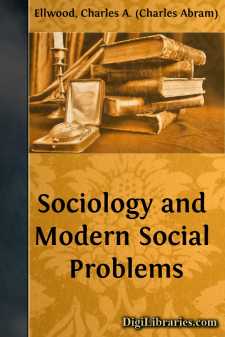Categories
- Antiques & Collectibles 13
- Architecture 36
- Art 48
- Bibles 22
- Biography & Autobiography 813
- Body, Mind & Spirit 142
- Business & Economics 28
- Children's Books 14
- Children's Fiction 11
- Computers 4
- Cooking 94
- Crafts & Hobbies 4
- Drama 346
- Education 46
- Family & Relationships 57
- Fiction 11829
- Games 19
- Gardening 17
- Health & Fitness 34
- History 1377
- House & Home 1
- Humor 147
- Juvenile Fiction 1873
- Juvenile Nonfiction 202
- Language Arts & Disciplines 88
- Law 16
- Literary Collections 686
- Literary Criticism 179
- Mathematics 13
- Medical 41
- Music 40
- Nature 179
- Non-Classifiable 1768
- Performing Arts 7
- Periodicals 1453
- Philosophy 64
- Photography 2
- Poetry 896
- Political Science 203
- Psychology 42
- Reference 154
- Religion 513
- Science 126
- Self-Help 84
- Social Science 81
- Sports & Recreation 34
- Study Aids 3
- Technology & Engineering 59
- Transportation 23
- Travel 463
- True Crime 29
Sociology and Modern Social Problems
Categories:
Description:
Excerpt
CHAPTER I
THE STUDY OF SOCIETY
What is Society?—Perhaps the great question which sociology seeks to answer is this question which we have put at the beginning. Just as biology seeks to answer the question "What is life?"; zoölogy, "What is an animal?"; botany, "What is a plant?"; so sociology seeks to answer the question "What is society?" or perhaps better, "What is association?" Just as biology, zoölogy, and botany cannot answer their questions until those sciences have reached their full and complete development, so also sociology cannot answer the question "What is society?" until it reaches its final development. Nevertheless, some conception or definition of society is necessary for the beginner, for in the scientific discussion of social problems we must know first of all what we are talking about. We must understand in a general way what society is, what sociology is, what the relations are between sociology and other sciences, before we can study the social problems of to-day from a sociological point of view.
The word "society" is used scientifically to designate the reciprocal relations between individuals. More exactly, and using the term in a concrete sense, a society is any group of individuals who have more or less conscious relations to each other. We say conscious relations because it is not necessary that these relations be specialized into industrial, political, or ecclesiastical relations. Society is constituted by the mental interaction of individuals and exists wherever two or three individuals have reciprocal conscious relations to each other. Dependence upon a common economic environment, or the mere contiguity in space is not sufficient to constitute a society. It is the interdependence in function on the mental side, the contact and overlapping of our inner selves, which makes possible that form of collective life which we call society. Plants and lowly types of organisms do not constitute true societies, unless it can be shown that they have some degree of mentality. On the other hand, there is no reason for withholding the term "society" from many animal groups. These animal societies, however, are very different in many respects from human society, and are of interest to us only as certain of their forms throw light upon human society.
We may dismiss with a word certain faulty conceptions of society. In some of the older sociological writings the word society is often used as nearly synonymous with the word nation. Now, a nation is a body of people politically organized into an independent government, and it is manifest that it is only one of many forms of human society. Another conception of society, which some have advocated, is that it is synonymous with the cultural group. That is, a society is any group of people that have a common civilization, or that are bearers of a certain type of culture. In this case Christendom, for example, would constitute a single society. Cultural groups no doubt are, again, one of the forms of human society, but only one among many....


